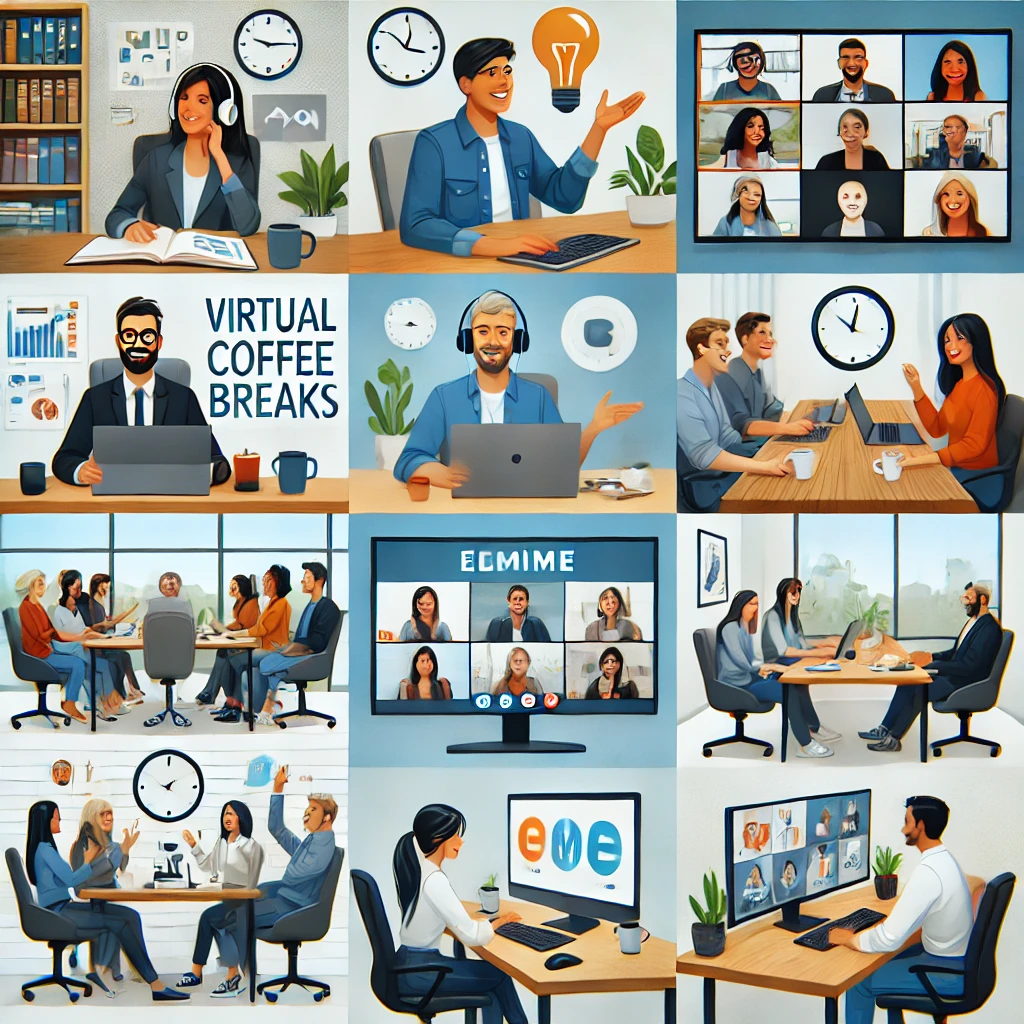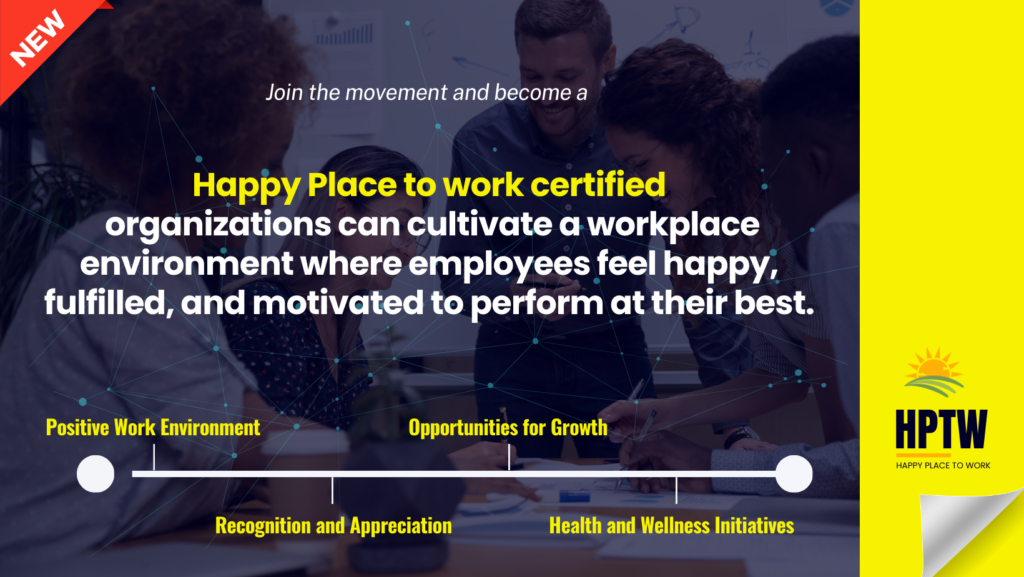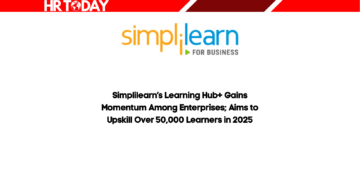Imagine a workforce where employees wake up energized, brimming with ideas, and eager to contribute their best. This isn’t just a utopian vision; it’s the reality that companies achieve with a highly engaged workforce. Engaged employees are not just satisfied; they’re demonstrably more productive, innovative, and loyal. Gallup’s findings reveal that organizations boasting of highly engaged employees experience a 21% surge in profitability compared to those with less engaged staff. Moreover, they demonstrate a 17% uptick in productivity relative to counterparts with disengaged workers. In today’s dynamic corporate sphere, the notion of employee engagement has evolved beyond mere job satisfaction and loyalty.
In this article, I’ll attempt to explore the changing dynamics of employee engagement, the role of technology, and actionable insights for cultivating a future-ready approach.
The Evolution of Employee Engagement
The traditional workplace – with its nine-to-five routine and cubicle farms – is fading into the past. The rise of remote work, coupled with the growing prominence of Gen Z and Millennial employees who value flexibility and purpose, necessitates a rethinking of engagement strategies. Conventional approaches, such as annual surveys and recognition programs, are giving way to more dynamic and holistic strategies. This transformation requires a fresh approach to keep employees engaged, as the physical office space no longer serves as the sole epicenter of professional interaction.
Looking Ahead: Key Trends Shaping Employee Engagement
Harnessing Technology for Enhanced Engagement
- The integration of technology in the workplace has been a double-edged sword. While it has streamlined processes and enhanced communication, it has also led to an ‘always-on‘ culture that can erode work-life balance. To counteract this, companies must implement wellness programs and emphasize the importance of mental health, recognizing that a healthy employee is an engaged employee. The organisations need to redefine how they engage with their employees. From AI-powered chatbots for instant feedback to virtual reality simulations for immersive learning experiences, digital tools are transforming the employee experience. For example, companies like Salesforce use AI algorithms to analyze employee sentiment and provide personalized recommendations for improving engagement. Organizations such as IBM employ sentiment analysis to track the sentiment of employees on internal social media platforms, helping them grasp employee sentiments and implement enhancements accordingly. Through sentiment analysis of employee feedback, Microsoft ensures a thorough grasp of employee sentiment, thereby improving performance evaluations and developing better employee engagement. By leveraging technology, organizations can create more agile, responsive engagement strategies that resonate with the digital-native workforce.
The future of employee engagement is a dynamic one, shaped by several key trends:

- Cultivating Connection in a Remote World
In an era of remote work and dispersed teams, fostering a sense of connection and belonging is paramount for employee engagement. Virtual team-building activities, online communities, and social collaboration platforms have become indispensable tools for nurturing a cohesive and inclusive workplace culture. For instance, companies like Slack organize virtual coffee chats and team trivia sessions to foster camaraderie among remote employees. By prioritizing connection and communication, organizations can bridge the gap between physical and virtual workspaces, fostering meaningful relationships that drive engagement and collaboration.
- Prioritizing Well-being and Resilience
Employee engagement is closely intertwined with well-being, both inside and outside the workplace. As awareness of mental health issues grows, organizations are placing a greater emphasis on supporting employees’ holistic well-being. Flexible work arrangements, wellness programs, and mental health resources are becoming standard offerings in progressive workplaces. For example, companies like Deloitte provide mindfulness workshops and resilience training to help employees manage stress and enhance their overall well-being. As a brand dedicated to fostering a healthy lifestyle, Nike naturally boasts an impressive track record of cultivating a supportive work environment. Pioneering initiatives like offering complimentary meditation sessions and yoga classes on a weekly basis, Nike has set the standard. These practices have expanded to numerous locations globally, promoting mindfulness among its workforce. By prioritizing employee well-being, Nike ensures a rejuvenated and focused team, ultimately enhancing productivity and reducing absenteeism. By prioritizing well-being, organizations can create a supportive environment where employees feel valued, cared for, and motivated to perform at their best.
- Inspiring Purposeful Engagement
In today’s socially conscious world, employees seek meaning and purpose in their work beyond financial rewards. Organizations that align their mission and values with employees’ personal and professional aspirations are more likely to foster deep engagement and loyalty. By articulating a compelling purpose and empowering employees to contribute to meaningful causes, organizations can inspire a sense of purpose that transcends individual roles and drives collective engagement towards a shared vision. Another innovative and interesting example is from tech giant “Google”, they implemented a ‘20% time’ policy, allowing employees to spend one day a week working on projects outside their regular responsibilities. This initiative not only spurred innovation within the company but also significantly boosted employee engagement and retention. However, it wasn’t Google that originated this practice. They actually adopted it from 3M, whose “15% rule” has roots dating back to 1948. At 3M, engineers are granted the opportunity to allocate 15% of their time to pursue self-directed projects.
Actionable Insights for HR and L&D Professionals
As organizations prepare for the future, they need to be proactive in crafting engagement strategies that resonate with their workforce. This includes offering continuous learning opportunities, fostering a collaborative culture, and providing a clear vision of the company’s direction and the employee’s role in it.
There are several actionable that the oraganisations must take to cultivate a future-ready approach to employee engagement:
- Embrace technology:
- Explore innovative digital tools: Actively seek out new technology that can streamline communication, enhance collaboration, and improve feedback processes. This could include an internal social media app, communication portal, or feedback platforms tailored to the organisation’s needs.
- Implement regular feedback: Instead of relying solely on annual reviews, organisations may consider establishing a culture of continuous feedback. Regular check-ins, whether informal or structured, provide opportunities for ongoing dialogue and improvement.
- Recognize contributions promptly: Timely recognition is crucial for morale and motivation. Organisations may consider inculcating a habit of acknowledging and celebrating employee achievements as they happen, which would ultimately lead to a culture of appreciation and recognition.
- Foster connection:
- Prioritize virtual team-building: With remote and dispersed teams becoming more common, investing in virtual team-building activities is essential. Whether it’s online games, virtual coffee breaks, or collaborative projects, these activities strengthen bonds and foster a sense of camaraderie.
- Create inclusive communication channels: Ensuring everyone feels heard and valued is vital for team cohesion. Consider establishing communication channels where all team members feel comfortable sharing ideas, asking questions, and offering feedback, regardless of their location or role.
- Support well-being:
- Roll out wellness programs: Promoting physical and mental well-being should be a top priority. Wellness programs that offer resources such as fitness classes, mindfulness sessions, or access to counseling services can help employees manage stress and maintain a healthy work-life balance. Offer flexible work arrangements: Flexibility is key to supporting employees’ diverse needs and responsibilities outside of work. Whether it’s remote work options, flexible hours, or compressed workweeks, providing flexibility shows that their well-being is valued.
- Provide mental health resources: Mental health is just as important as physical health. Offering resources such as counseling services, mental health awareness training, or employee assistance programs can create a supportive environment where employees feel comfortable seeking help when needed.
- Communicate purpose:
- Articulate organizational purpose: Clearly define and communicate our company’s mission, vision, and values. When employees understand the bigger picture and how their work contributes to it, they feel a stronger sense of purpose and connection to the organization.
- Empower employees: Providing opportunities for autonomy and ownership over projects gives employees a sense of agency and control. When they see the direct impact of their contributions on achieving organizational goals, they feel more engaged and motivated to excel.
- Personalized growth:
- Tailor career development plans: It’s imperative to recognize that each employee has unique goals and aspirations. This could involve setting clear goals, identifying learning opportunities, and providing mentorship or coaching tailored to individual needs.
- Promote growth mindset: Encouraging a culture of continuous learning and growth fosters resilience and adaptability. Provide resources and support for employees to develop new skills, pursue interests, and advance their careers within the organization.
- Invest in Meaningful Work:
- Highlight impact: Help employees understand the significance of their contributions to the organization’s mission and goals. By connecting their work to the bigger picture, they gain a sense of purpose and fulfillment.
- Encourage autonomy: Empowering employees to take ownership of their projects fosters a sense of accountability and pride in their work. Providing opportunities for creativity and decision-making allows them to contribute meaningfully to the organization’s success.
Finally…
By reassessing and enhancing the approach to employee engagement, organisations can foster a more inclusive and supportive work environment where every team member feels valued and empowered. This shift is essential because it acknowledges the multifaceted nature of employee engagement, which extends beyond occasional events to encompass daily interactions, communication channels, and support systems.
The future of employee engagement holds immense promise, lifted by the advancements in technology, enhanced connectivity, and a renewed emphasis on employee well-being and purpose. It’s about placing connection, well-being, and purpose at the forefront of strategies. By harnessing the power of technology, organisations can facilitate seamless communication, collaboration, and feedback mechanisms, fostering stronger bonds among team members regardless of physical distance. Cultivating a culture of connection means prioritizing virtual team-building activities, creating inclusive communication channels, and providing platforms for open dialogue and idea-sharing. Additionally, championing employee well-being involves implementing wellness programs, offering flexible work arrangements, and providing access to mental health resources. Recognizing and articulating the organizational purpose empowers employees to see the significance of their contributions, fueling their motivation and engagement.
Also Read: Employee Health and Wellbeing: Way to Go on World Health Day












